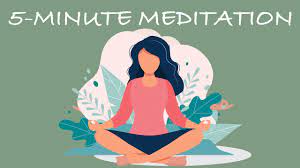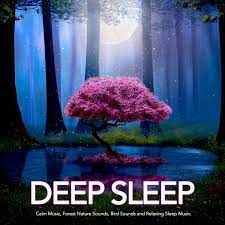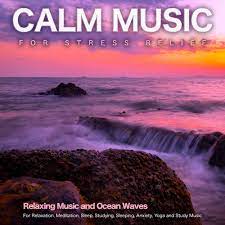The Power of Sleep Music: Enhancing Your Sleep Experience
Sleep is an essential part of our daily lives, allowing our bodies and minds to rejuvenate and recharge. However, many people struggle with falling asleep or staying asleep throughout the night. This is where the power of sleep music comes in.
Sleep music, also known as relaxation music or calming melodies, has gained significant popularity in recent years as a natural aid for better sleep. It involves listening to soothing sounds and gentle melodies that promote relaxation and create a peaceful ambiance conducive to sleep.
One of the primary benefits of sleep music is its ability to calm the mind and reduce stress levels. In our fast-paced world filled with constant stimulation, it can be challenging to switch off our thoughts and unwind before bed. Sleep music acts as a tool to quieten the mind by providing a pleasant auditory distraction, helping us let go of the day’s worries and anxieties.
Moreover, sleep music has been shown to regulate heart rate and lower blood pressure, leading to a more relaxed state of being. The gentle rhythms and harmonies can induce a sense of tranquility, allowing both body and mind to enter a deeper state of restfulness.
Another advantage of incorporating sleep music into your bedtime routine is its ability to establish a consistent sleep schedule. By creating an association between certain melodies or sounds with sleep, your brain begins to recognize these cues as signals for winding down and preparing for rest. Over time, this conditioning can help regulate your internal body clock, making it easier to fall asleep at night and wake up refreshed in the morning.
Furthermore, sleep music can drown out disruptive noises from your surroundings. Whether it’s traffic outside your window or noisy neighbors, these disturbances can interfere with your ability to fall asleep or stay asleep throughout the night. By playing soothing tunes or nature sounds through headphones or speakers, you create a serene auditory environment that masks unwanted noises and promotes uninterrupted slumber.
When choosing sleep music, it’s important to opt for tracks specifically designed for relaxation and sleep. These compositions typically feature slow tempos, soft instrumentation, and minimal lyrics, allowing your mind to drift off without distraction. Genres such as classical, ambient, instrumental, or nature sounds are often recommended for their calming qualities.
In addition to sleep music, there are various apps and online platforms that offer curated playlists or personalized recommendations based on your sleep preferences. These resources provide a wide range of options to cater to individual tastes and needs.
Remember that incorporating sleep music into your routine is just one part of cultivating healthy sleep habits. It’s essential to create a conducive sleep environment by maintaining a comfortable temperature, minimizing light exposure, and establishing a regular bedtime routine.
So the next time you find yourself tossing and turning in bed or struggling to unwind after a long day, consider adding the power of sleep music to your nightly ritual. Allow the soothing melodies to guide you into a peaceful slumber and experience the transformative benefits of enhanced sleep quality.
7 Frequently Asked Questions About Sleep Music: Exploring the Best, Benefits, and Safety
- What is the best sleep music?
- How do I find good sleep music?
- Is there any scientific evidence that sleep music helps with sleeping?
- What are the benefits of listening to sleep music?
- How long should I listen to sleep music for optimal results?
- Is it safe to listen to sleep music every night?
- Are there any side effects associated with listening to sleep music?
What is the best sleep music?
The best sleep music can vary depending on personal preferences and what helps an individual relax and unwind. However, there are a few genres and types of music that are commonly recommended for promoting better sleep:
- Ambient Music: Ambient music is characterized by its atmospheric and soothing nature. It often consists of soft, flowing sounds, gentle melodies, and minimal vocals. The calming and repetitive qualities of ambient music can help create a tranquil environment for sleep.
- Classical Music: Classical compositions, particularly those with slower tempos and softer dynamics, have been known to induce relaxation and promote a sense of calmness. Pieces by composers such as Mozart, Bach, or Chopin are often recommended for their soothing qualities.
- Instrumental Music: Instrumental tracks without lyrics can be ideal for sleep as they eliminate the distraction of words or vocals. Whether it’s instrumental versions of popular songs or specifically composed instrumental tracks, the absence of lyrics allows the mind to focus on the melodies without engaging in active listening.
- Nature Sounds: Many people find solace in the sounds of nature when trying to fall asleep. Gentle raindrops, ocean waves, rustling leaves, or chirping birds can create a serene atmosphere that mimics the soothing aspects of the natural world.
- Binaural Beats: Binaural beats involve playing two slightly different frequencies in each ear to create a perceived beat frequency within the brain. These beats have been associated with relaxation and improved sleep quality for some individuals.
Ultimately, discovering the best sleep music for you may involve some trial and error. Experiment with different genres or types of music to find what resonates most with your personal preferences and helps you achieve a peaceful state before bedtime. Additionally, there are numerous playlists and curated collections available online or through streaming platforms specifically designed for sleep that can serve as a starting point in your search for the perfect sleep music.
How do I find good sleep music?
Finding good sleep music that suits your preferences and promotes relaxation can greatly enhance your sleep experience. Here are some tips to help you find the right sleep music for you:
- Explore different genres: Start by exploring different genres of music known for their calming and soothing qualities. Classical music, ambient music, instrumental tracks, nature sounds, and even certain types of electronic or new age music can be excellent choices for sleep.
- Online platforms and streaming services: Utilize online platforms and streaming services that offer curated playlists or dedicated sections for sleep and relaxation. Platforms like Spotify, Apple Music, YouTube, and Calm have a wide selection of sleep playlists designed to help you unwind and fall asleep.
- Sleep-focused apps: Consider using sleep-focused apps that provide a range of sleep sounds and guided meditations specifically designed to promote relaxation and better sleep. Apps like Headspace, Calm, Sleep Cycle, and Relax Melodies offer various options to suit your preferences.
- Nature sounds: Many people find solace in nature sounds such as raindrops, ocean waves, forest ambiance, or gentle wind. Look for recordings or playlists featuring these natural sounds to create a serene environment conducive to sleep.
- White noise or ASMR: Some individuals find white noise or ASMR (Autonomous Sensory Meridian Response) helpful for inducing relaxation and reducing anxiety before bed. These types of sounds can be found on dedicated apps or websites that specialize in providing white noise or ASMR content.
- Personalized recommendations: Take advantage of personalized recommendation features on streaming platforms or apps based on your listening history or preferences. These algorithms can suggest tracks similar to what you enjoy, making it easier to discover new sleep music that aligns with your taste.
- Experimentation: Don’t be afraid to experiment with different types of sleep music until you find what works best for you. Everyone’s preferences are unique, so what may work for one person may not work for another. Give different genres, artists, or playlists a try to see what resonates with you and helps you relax.
Remember, the goal is to find music that promotes relaxation and creates a peaceful ambiance. Pay attention to how certain tracks make you feel and adjust your selection accordingly. With some exploration and experimentation, you’ll be able to discover the perfect sleep music that aids in your journey towards better sleep.
Is there any scientific evidence that sleep music helps with sleeping?
Yes, there is scientific evidence supporting the effectiveness of sleep music in improving sleep quality. Several studies have explored the impact of relaxing music on sleep and have found positive results.
Research conducted at the University of Toronto showed that listening to calming music before bedtime can significantly improve sleep quality in individuals with insomnia. The study found that participants who listened to 45 minutes of relaxing music before bed experienced better sleep efficiency, increased total sleep time, and decreased time spent awake during the night.
Another study published in the Journal of Advanced Nursing investigated the effects of music on sleep quality among older adults. The researchers found that participants who listened to soothing music for 45 minutes before bedtime reported improved sleep duration, reduced nighttime awakenings, and enhanced overall sleep quality compared to those who did not listen to music.
Furthermore, a meta-analysis published in the journal Sleep Medicine Reviews examined multiple studies on the effects of music interventions on various aspects of sleep. The analysis concluded that listening to relaxing music before bed can improve subjective measures of sleep quality, including increased total sleep time and decreased time taken to fall asleep.
It’s important to note that individual responses to sleep music may vary, and it may not be a comprehensive solution for everyone experiencing sleep difficulties. However, these studies provide compelling evidence suggesting that incorporating relaxing melodies into your bedtime routine can have a positive impact on your sleep experience.
The power of sleep music lies in its ability to induce relaxation, reduce stress levels, and create a soothing environment conducive to restful slumber. By promoting a state of calmness and tranquility, it can help prepare both body and mind for a more peaceful night’s rest.
If you are struggling with insomnia or other persistent sleeping issues, it is advisable to consult with a healthcare professional or a sleep specialist who can provide personalized guidance tailored to your specific needs.
What are the benefits of listening to sleep music?
Listening to sleep music offers several benefits that contribute to a better sleep experience. Here are some key advantages:
- Relaxation and Stress Reduction: Sleep music helps calm the mind and relax the body, reducing stress levels and promoting a sense of tranquility. The soothing melodies and gentle rhythms act as an auditory distraction, helping you let go of worries and anxieties that may hinder sleep.
- Improved Sleep Quality: Sleep music can enhance the quality of your sleep by creating a peaceful ambiance. It helps regulate heart rate and lower blood pressure, leading to a more restful state of being. By inducing relaxation, sleep music allows you to enter deeper stages of sleep, resulting in more rejuvenating rest.
- Setting a Bedtime Routine: Incorporating sleep music into your bedtime routine creates an association between certain sounds or melodies and sleep. Over time, this conditioning helps train your brain to recognize these cues as signals for winding down and preparing for rest. Establishing a consistent routine can regulate your internal body clock, making it easier to fall asleep at night and wake up refreshed in the morning.
- Masking Disruptive Noises: Sleep music acts as a buffer against external noises that may disturb your sleep. Whether it’s traffic sounds, noisy neighbors, or other environmental disturbances, playing soothing tunes or nature sounds can help drown out unwanted noise and create a serene auditory environment conducive to uninterrupted slumber.
- Mindfulness and Mental Focus: Sleep music can facilitate mindfulness by redirecting attention away from racing thoughts or intrusive stimuli that keep you awake. By providing a calming focal point, it promotes mental relaxation and improves concentration, allowing you to achieve a state of inner stillness necessary for falling asleep.
- Enhanced Sleep Environment: By incorporating sleep music into your routine, you create an atmosphere specifically designed for relaxation and restfulness. This contributes to establishing an optimal sleep environment by minimizing distractions, promoting comfort, and signaling your body that it’s time to unwind and sleep.
Remember that the benefits of sleep music may vary from person to person, and it’s essential to find the sounds and melodies that work best for you. Experiment with different genres, styles, or nature sounds to discover what promotes the most relaxation and aids your sleep journey.
How long should I listen to sleep music for optimal results?
The optimal duration for listening to sleep music can vary from person to person. However, it is generally recommended to listen to sleep music for at least 30 minutes to an hour before bedtime. This timeframe allows your mind and body to gradually relax and enter a state of calmness.
Ideally, you should start playing sleep music as part of your bedtime routine, giving yourself enough time to wind down and prepare for sleep. This could involve activities such as dimming the lights, practicing relaxation techniques, or engaging in a soothing bedtime ritual.
If you find that you are still awake after an hour of listening to sleep music, it may be beneficial to continue playing it softly in the background throughout the night. This can help create a continuous and peaceful ambiance that promotes uninterrupted sleep.
It’s important to note that everyone’s response to sleep music can differ. Some individuals may find that they fall asleep quickly within a shorter timeframe, while others may require more time to fully relax and drift off. It may take some experimentation and personal adjustment to determine the ideal duration of sleep music that works best for you.
Additionally, consider your own preferences and needs when deciding on the length of time for listening to sleep music. If you feel particularly stressed or have difficulty falling asleep, you may choose to extend the duration of listening until you feel more relaxed and ready for rest.
Remember that incorporating other healthy sleep habits alongside sleep music is crucial for optimal results. This includes maintaining a consistent sleep schedule, creating a comfortable sleeping environment, limiting screen time before bed, and practicing relaxation techniques.
Ultimately, finding the right balance and routine that works for you is key. Pay attention to how your body responds and adjust accordingly until you discover the optimal duration of sleep music that helps facilitate a restful night’s sleep.
Is it safe to listen to sleep music every night?
Listening to sleep music every night is generally safe and can be beneficial for many individuals. However, it’s important to consider a few factors to ensure a positive and healthy experience:
- Volume: Make sure the volume of the sleep music is set at a comfortable level. It should be soft enough to promote relaxation but not so loud that it becomes disruptive or potentially harmful to your hearing.
- Content: Choose sleep music that is specifically designed for relaxation and sleep. Avoid tracks with sudden loud noises, intense beats, or lyrics that may stimulate the mind rather than induce calmness.
- Personal Preference: Everyone has different preferences when it comes to sleep music. Experiment with different genres, melodies, or nature sounds to find what works best for you. What may be soothing for one person might not have the same effect on another.
- Consistency: Establishing a consistent bedtime routine, including listening to sleep music, can help signal your body and mind that it’s time to relax and prepare for sleep. Consistency is key in reaping the benefits of incorporating sleep music into your routine.
- Individual Sensitivities: Some individuals may have specific sensitivities or conditions that could impact their response to sleep music. If you have any concerns or pre-existing conditions, it’s always advisable to consult with a healthcare professional before incorporating any new practices into your bedtime routine.
Overall, listening to sleep music every night can be a safe and effective way to enhance your sleep experience and promote relaxation. However, it’s important to listen mindfully and make adjustments based on your personal comfort and needs.
Are there any side effects associated with listening to sleep music?
Listening to sleep music is generally considered safe and does not have any significant side effects. However, it’s important to note that everyone’s experience may vary, and some individuals may have specific sensitivities or reactions to certain sounds or frequencies.
Here are a few considerations to keep in mind:
- Volume: It is crucial to listen to sleep music at a comfortable volume that is not too loud or too soft. Excessively loud music can potentially disrupt your sleep or cause discomfort, while very low volumes may make it difficult to hear the soothing sounds effectively.
- Personal Preferences: Sleep music encompasses various genres and styles, ranging from classical compositions to ambient nature sounds. It’s essential to choose music that resonates with you personally and brings you a sense of relaxation. Different individuals may respond differently to various types of music, so finding what works best for you is key.
- Sensitivities: Some individuals may be more sensitive to certain frequencies or sounds than others. If you notice any discomfort, irritability, or heightened anxiety when listening to specific sleep music, it might be worth exploring alternative options that better suit your preferences.
- Distractions: While sleep music aims to create a peaceful ambiance conducive to sleep, some people may find it distracting or stimulating instead. If you find yourself becoming more alert or unable to relax while listening to sleep music, it might be beneficial for you to explore other relaxation techniques such as guided meditation or white noise.
- Interference with Sleep Patterns: Although sleep music can help many people fall asleep faster and improve the overall quality of their sleep, some individuals might become dependent on it for falling asleep. It’s important not to rely solely on external stimuli for achieving restful sleep in the long term but rather focus on developing healthy sleep habits and creating an optimal sleep environment.
If you have any concerns about listening to sleep music or experience any adverse effects while using it, it’s advisable to consult with a healthcare professional or sleep specialist who can provide personalized guidance based on your specific needs and circumstances.




